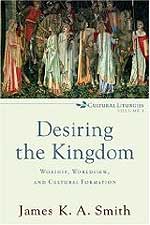I preached a two-part sermon series a few weeks ago about the importance of thinking Christianly. Now I am well aware that there are some who think that putting “Christian” and “thinking” in the same phrase is an oxymoron, but I will not address those concerns here. Basically my sermons were reflections on what it may look like for someone to “Love the Lord your God… with all of your MIND…” (Mark 12:30).
 In the second sermon I painted a profile of what I believe are some important characteristics of an “intellectually mature believer.” First and foremost, I underscored the importance of “epistemic humility” based on our fallenness, fallibility and finitude. The second characteristic was openness. More particularly, I emphasized the importance of openness to God and Scripture, openness to all truth (no matter where it may be found), and a genuine openness to others. By openness I do not mean a wishy-washy relativism, but something called “critical commitment” where you know what you believe and why and hold it with faith, moral courage, and epistemic humility. My final characteristic of an intellectually mature believer was that he or she should have as a goal integration. Here I was arguing for a somewhat unified/integrated Christian perspective on the world and our faith (I consider the modifier “somewhat” very important). This “unified view” is often referred to as a “worldview” or “world and life view.” While there are a number of limitations to the concept of a worldview (especially the notion that there is such an animal as “the Christian worldview” or that worldviews are somehow impervious to culture rather than embedded in culture), I still find it a helpful concept for thinking about thinking.
In the second sermon I painted a profile of what I believe are some important characteristics of an “intellectually mature believer.” First and foremost, I underscored the importance of “epistemic humility” based on our fallenness, fallibility and finitude. The second characteristic was openness. More particularly, I emphasized the importance of openness to God and Scripture, openness to all truth (no matter where it may be found), and a genuine openness to others. By openness I do not mean a wishy-washy relativism, but something called “critical commitment” where you know what you believe and why and hold it with faith, moral courage, and epistemic humility. My final characteristic of an intellectually mature believer was that he or she should have as a goal integration. Here I was arguing for a somewhat unified/integrated Christian perspective on the world and our faith (I consider the modifier “somewhat” very important). This “unified view” is often referred to as a “worldview” or “world and life view.” While there are a number of limitations to the concept of a worldview (especially the notion that there is such an animal as “the Christian worldview” or that worldviews are somehow impervious to culture rather than embedded in culture), I still find it a helpful concept for thinking about thinking.
In this regard, I was quite interested in a notice I received today about a new book by Calvin College philosopher, . The book is Desiring the Kingdom: Worship, Worldview, and Cultural Formation (Baker Academic, 2009; Buy from Amazon.ca | Amazon.com). The latest Christianity Today has a brief review article on the book entitled, “Putting Worldview in Its Place.” The book looks like a balanced perspective on worldview and Christian education. Methinks I will have to order myself a copy.

Did you preach at Ellerslie? I’ve been away a lot this summer so I’m thinking I must have missed it.
Yup, it was the last week of July and first week of August.
It sounds to me like you are in substantial agreement with trends in so-called “virtue epistemology.” I suspect an interesting case could be made that Christian theology lends itself well to this particular philosophical view.